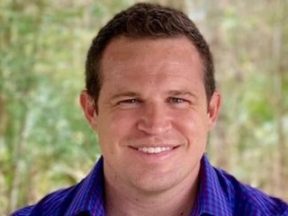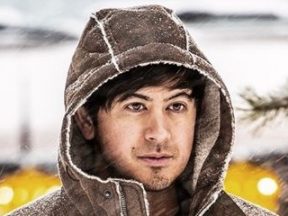Tony Smith was looking to acquire an ecommerce business when a friend told him about TimberVaults, a direct-to-consumer seller of concealed gun safes. Smith was interested, but not just for guns. He saw opportunities to store other valuables, such as jewelry and documents. So he purchased the company.
He told me, “I plan on two brands selling the same product. There’s TimberVaults focused on guns. Then there’s an ‘everything else’ category.”
Having acquired the business a few months ago, Smith is learning the ropes. He and I recently discussed it all, from early mistakes to operations decisions and more. The entire audio of our conversation is embedded below. The transcript is edited for clarity and length.
Eric Bandholz: What do you do?
Tony Smith: I own an ecommerce brand called TimberVaults. We’re a direct-to-consumer seller of concealment furniture based in Austin, Texas. Think of a shelf you mount on the wall. In that shelf is a secret compartment with an electronic lock.
To open it, there is a credit card, a quarter-sized disc, or a key fob that you put on a specific shelf area. We’re moving to add a Bluetooth, phone-enabled option, but it’s just radio frequency identification now. Customers keep the fob on their key chain or the card in their wallet, and then there’s a quarter-sized disc that folks sometimes glue underneath, say, a vase on the shelf.
I bought the brand a few months back. It was primarily focused on guns. Sometimes folks don’t store guns properly, which has disastrous consequences. Our product provides safe storage but still quick access in an emergency. But the opportunity for us is storing other things, such as jewelry, passports, documents, and papers.
I plan on two brands selling the same product. There’s TimberVaults focused on guns. Then there’s an “everything else” category. I have a name but haven’t disclosed it. Splitting into two brands will serve me better because I can speak clearly to each niche, despite the potential traffic loss from organic search and inbound links. We’ll rely on influencers, YouTube, seeding products, and blog posts.
Bandholz: How did you find the company?
Smith: I was looking to buy something in ecommerce and had been browsing brokerages. Brenden Marquard, a friend here in Austin who sells furniture online, was approached by the brand’s previous owner. It wasn’t a good fit for Brenden, but I thought it was cool.
I’m not an expert negotiator and relied on my lawyer. Still, I made many mistakes. The seller was fairly transparent, with clean enough books and a simple business that didn’t take too much due diligence. From there, we settled on the price and terms. I probably overpaid because I was looking at expanding to bigger markets.
Bandholz: What mistakes?
Smith: There are ancillary companies that touch the brand — the manufacturer, marketing agency, and third-party logistics provider. It seemed they all knew of the details of my acquisition. Very quickly after the deal closed, they all wanted to up their prices.
None of the increases was material, but collectively they added up. So, my mistake was not locking prices in advance from those vendors.
The other mistake was not realizing the prohibition on advertising gun products on many platforms. Facebook’s and Amazon’s advertising guidelines allow gun safes. However, an ad is rejected by algorithms if it contains a photo of a gun. The result is advertising on certain platforms is not feasible.
Bandholz: You’re now in the manufacturing game.
Smith: Yes. The prior owner used a Brazil-based manufacturer. It was challenging because it’s not a common trade route into the U.S. Ships are relatively infrequent compared to Asia, which means transport costs are more expensive. We’ve since found a U.S.-based manufacturer that offers the same price with standard payment terms.
U.S. manufacturing is a viable option. I assumed it would be more expensive, but the terms are good, and the price is reasonable. The only downside is an inventory gap — my manufacturer doesn’t make everything we sell. So, from my house in South Austin I’ve been building some shelves myself.
Bandholz: Tell us about your team.
Smith: All of my employees are remote in the Philippines. They’re mostly marketing-focused, such as SEO backlink-building, affiliate marketing, and influencer outreach and screening. We’ll likely augment their work with ChatGPT to create scripts and standard operating procedures.
I try to prioritize family time, even at the expense of earnings. I’m never going to get another summer with my eight-year-old son. If that means waking up earlier and working later, so be it.
Bandholz: Where can people support you?
Smith: TimberVaults.com is our site. I’m on Instagram — @Tony_outside.




